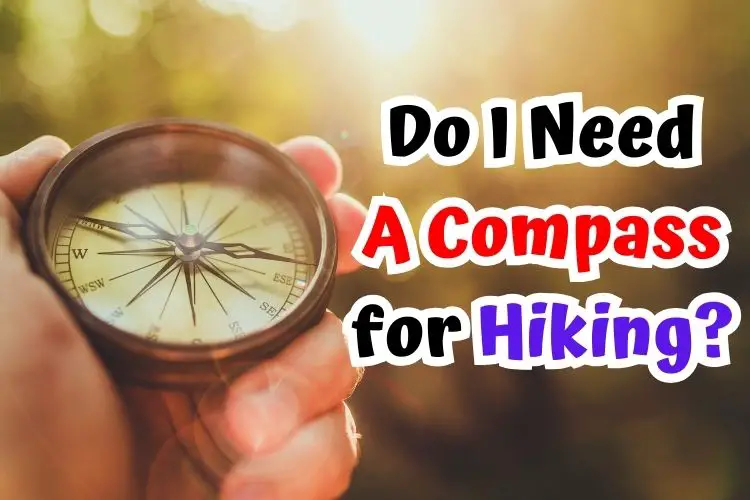Imagine you’re getting all set for a hiking adventure. The woods or mountains beckon, and you’re ready to explore.
But here’s a question on your mind: “Do I really need a compass for hiking?” In today’s tech-savvy world, where our smartphones and advanced devices offer GPS capabilities, does the classic compass still hold its importance?
Before you take that first step on the trail, let’s chat about the compass. We’ll figure out when it’s useful and when you can go without it.
So, get your hiking gear ready, and let’s explore the world of compasses on the trail.
Contents
The Role of a Compass in Hiking
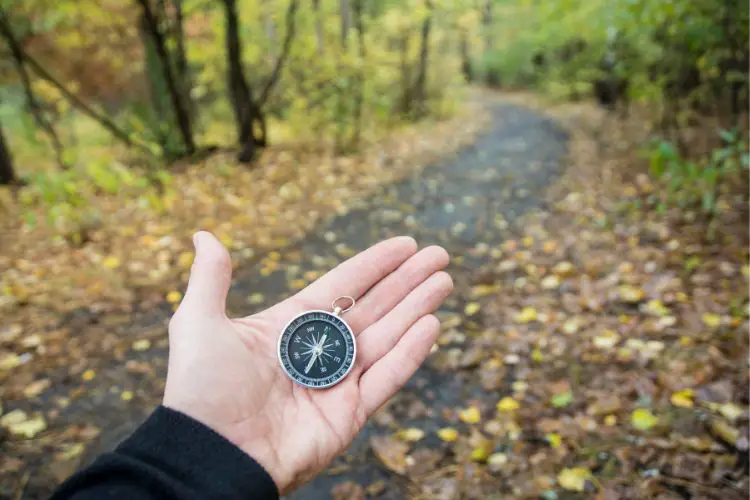
A compass is a simple yet indispensable tool for hikers. It serves several crucial purposes that enhance your hiking experience and ensure your safety.
- KEY FEATURES: This manual magnet compass consists of Acrylic Baseplate with Azimuth bearing and 360...
- PORTABLE & LIGHTWEIGHT: Boy Scout compass is small in size and an essential piece of survival gear...
- PROFESSIONAL, ADVANCE COMPASS NAVIGATION: Our orienteering compass is constructed for accurate...
Last update on 2023-11-10 / Affiliate links / Images from Amazon Product Advertising API
Here are what you can benefit from this little useful tool:
- Navigation: A compass can help you navigate through unfamiliar terrain. It provides you with a sense of direction and helps you determine your current location. This is especially valuable in areas where trails may be poorly marked, or you need to find your way back to your starting point.
- Preventing Getting Lost: A compass helps you maintain your orientation and stay on the right path. If you, unfortunately, become lost or separated from your group, a compass can help you find your way back to safety.
- Learning and Skill Building: Learning how to read and interpret a compass and reading a map can fosters a deeper understanding of the natural environment and boost your confidence as a hiker.
- Tough Terrain Tracker: Using a compass offers hikers reliable and battery-independent directional guidance. It even works well in remote areas with weak GPS signals and withstand rain or harsh sunlight well compared to our phones.
Disavantages of Using a Compass
Due to its simple structure, a compass, of course, can’t compare to a smartphone in many aspects.
- Less Versatile: One disadvantage of using a compass is its limited functionality compared to modern electronic navigation devices.
- Basic Directional Information: Compasses provide directional information but lack the detailed mapping, real-time tracking, and additional data like altitude and speed that GPS devices offer.
- Skill and Terrain Sensitivity: It also requires more skill and experience to use effectively, and they may be influenced by magnetic anomalies in certain terrains.
- Magnetic Interference Risk: It important to store compasses cautiously, away from magnetic items like watches, keys, metal jewelry, or phones, which can create interference and potentially harm the compass
How to Use a Compass for Hiking
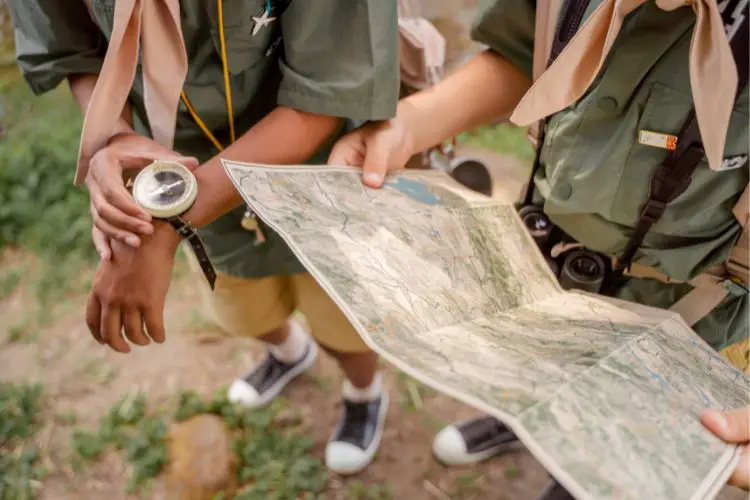
Using a compass may seem intimidating if you’ve never done it before, but it’s a skill that can be learned relatively easily.
Here’s a brief overview of how to use a compass for hiking:
- Understand the Basics: Familiarize yourself with the basic components of a compass, such as the magnetic needle and the rotating bezel. Learn how to read the cardinal directions (North, South, East, West) and understand declination (the angle difference between magnetic north and true north).
- Orient the Map: Before using your compass, orient your map to match the actual landscape. This involves aligning the map’s north-south lines with the north-south direction in the terrain.
- Set Your Course: Determine the direction you need to travel on the map to reach your destination. Align the compass’s baseplate edge with your current location and your destination, then rotate the bezel until the needle aligns with the orienting arrow.
- Follow the Bearing: Hold the compass level and look at the direction indicated by the compass needle. This is the direction you should follow.
When a Compass Might Not Be Necessary for Your Hike?

While a compass is a valuable tool, there are situations where you may not need to bring one:
- Familiar Trails: If you’re hiking on well-marked and familiar trails, especially in good weather conditions, and you’re confident in your knowledge of the area, you might choose to leave the compass behind.
- Short Day Hikes: For short, well-marked day hikes close to civilization, where getting lost is unlikely, carrying a compass may be optional. However, it’s still a good practice to have one as a backup.
- Highly Developed GPS Technology: If you are using advanced GPS devices with features like offline maps, multiple satellite system support, and long battery life, you may rely solely on your GPS for navigation in most situations.
Is A GPS Better than a Compass?
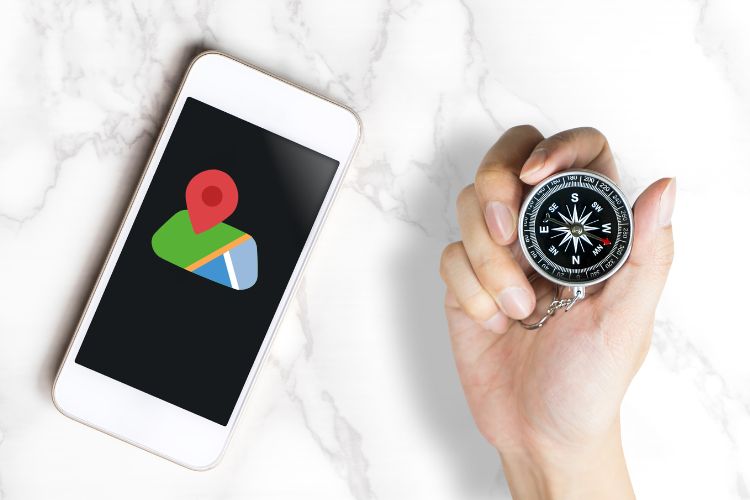
GPS and compasses have distinct roles and strengths.
GPS excels in precise location data, mapping, and real-time tracking, making it ideal for urban navigation and detailed route planning.
Compasses, on the other hand, provide reliable directional guidance and are crucial for wilderness and backcountry hiking, especially in areas with weak GPS signals.
Often, the most effective approach is to use both tools. The compass provides a sense of direction and helps you maintain your course, while a GPS offers precise location data and valuable information about your route.
This combination ensures comprehensive and reliable navigation.
Conclusion
A compass is a valuable tool that every hiker should consider carrying. It enhances your navigation abilities, helps you stay safe, and opens up a world of exploration in the great outdoors.
While modern technology like GPS devices and smartphone apps can also assist with navigation, a compass remains a reliable and essential backup tool, especially in remote areas where electronic devices may fail.
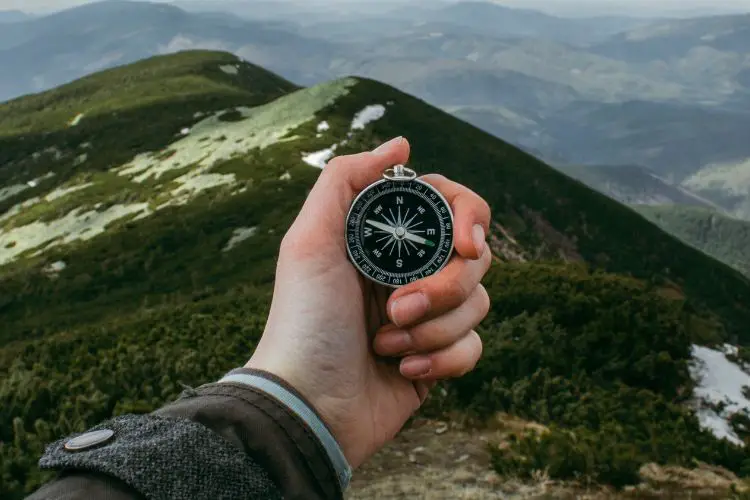
Remember, a compass is not just a tool; it’s a skill. Learning how to use one effectively can make your hiking adventures more enjoyable and ensure that you can confidently explore new trails while always finding your way back home.
So, the next time you hit the trails, consider bringing a compass along—it might just become your most trusted hiking companion.

